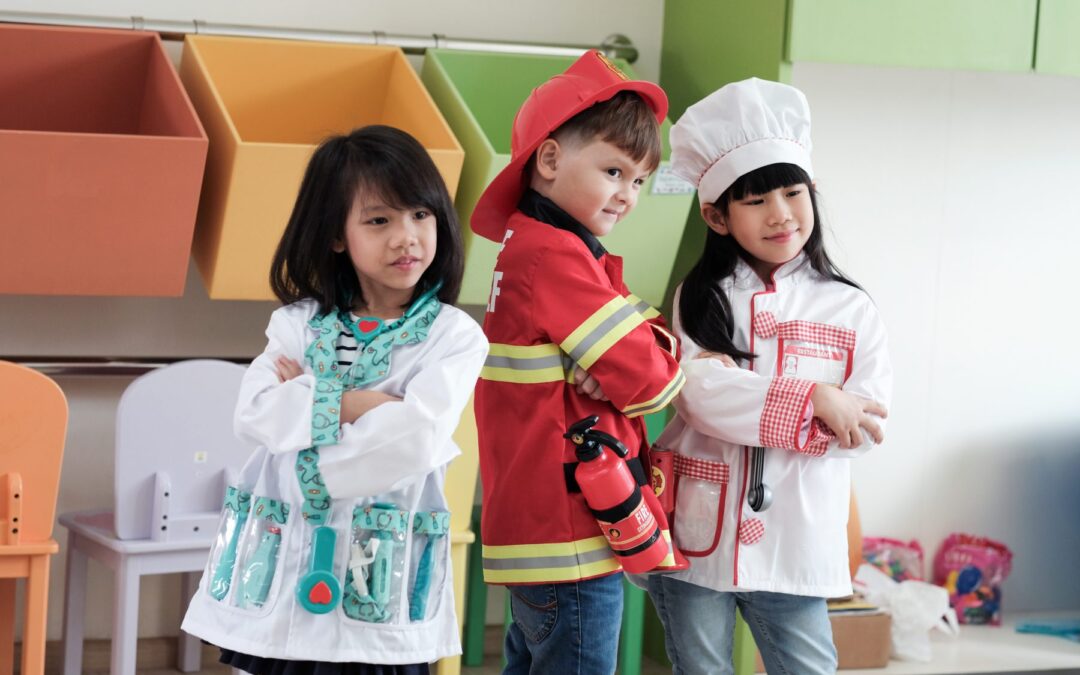The Role of Play in Preschool: Why it Matters for Child Development
Play is not just about fun—it’s a fundamental part of the educational journey. The importance of play in early childhood development is immense. Through play, children gain skills and knowledge that set the stage for future success.
Whether through building with blocks, solving puzzles, or engaging in pretend play, cognitive abilities are honed as children explore, experiment, and imagine. Play is the work of childhood, nurturing social skills such as sharing and cooperation, allowing children to express emotions, develop empathy, and build relationships.
Play also promotes physical activities that develop gross and fine motor skills. Whether running, jumping, climbing, or manipulating toys, children strengthen their muscles, improve coordination, and enhance their overall physical abilities through play.
Play in Preschool: Facilitating Learning and Boosting Creativity
Play is a critical component of our educational approach. It supports various aspects of learning and development, including language development. Through play, children experiment with words, sounds, and gestures, expanding their vocabulary and communication skills.
Play-based learning activities promote learning in an interactive manner. For example, building blocks teach spatial awareness and mathematical concepts, while art activities encourage creativity and self-expression, all while developing fine motor skills.
Furthermore, play enhances problem-solving skills. Open-ended play presents opportunities for critical thinking, decision-making, and problem-solving. It also cultivates creativity and innovation, encouraging children to think creatively and generate new ideas.
Creativity and Imagination Through Play
Imaginative play is a central part of our curriculum, fostering children’s creativity and imagination. It offers numerous benefits contributing to overall development.
Through pretend play, children can step into different roles, developing empathy and understanding different perspectives. This helps to build social skills and deepens their understanding of others.
Encouraging creativity in early education is crucial for enhancing a child’s problem-solving skills. Imaginative play often presents challenges that require creative solutions, enhancing their critical thinking abilities.
Open-ended play materials, such as blocks and art supplies, promote creativity and imagination. Unlike toys with specific functions, open-ended play materials encourage children to use their imagination and create their own narratives, enhancing their creativity and self-expression.
At Rising Stride, we understand the importance of play in early education. Our range of educational toys and materials are designed to support play-based learning and provide enriching experiences for children, nurturing curiosity, creativity, and critical thinking skills.

